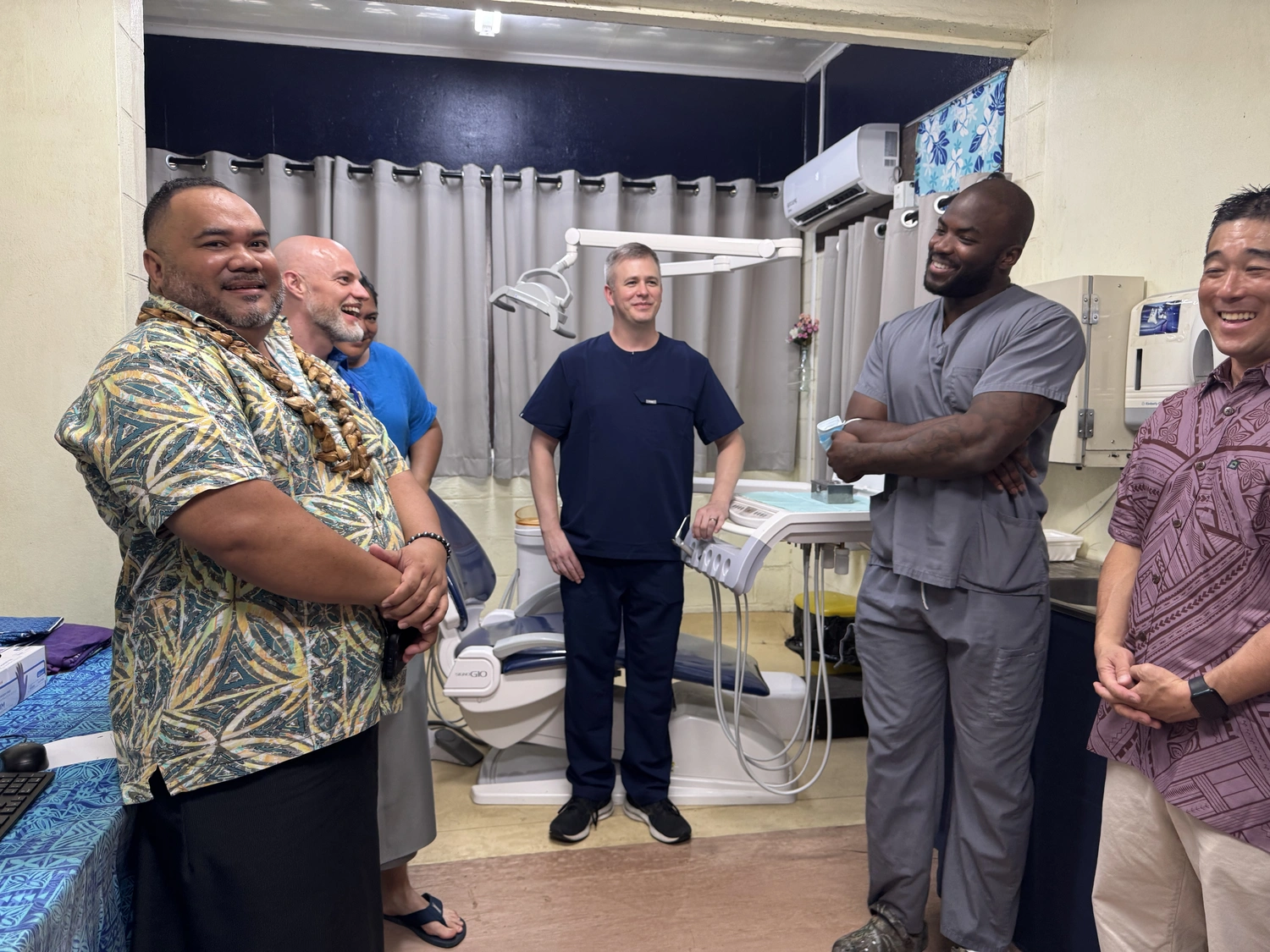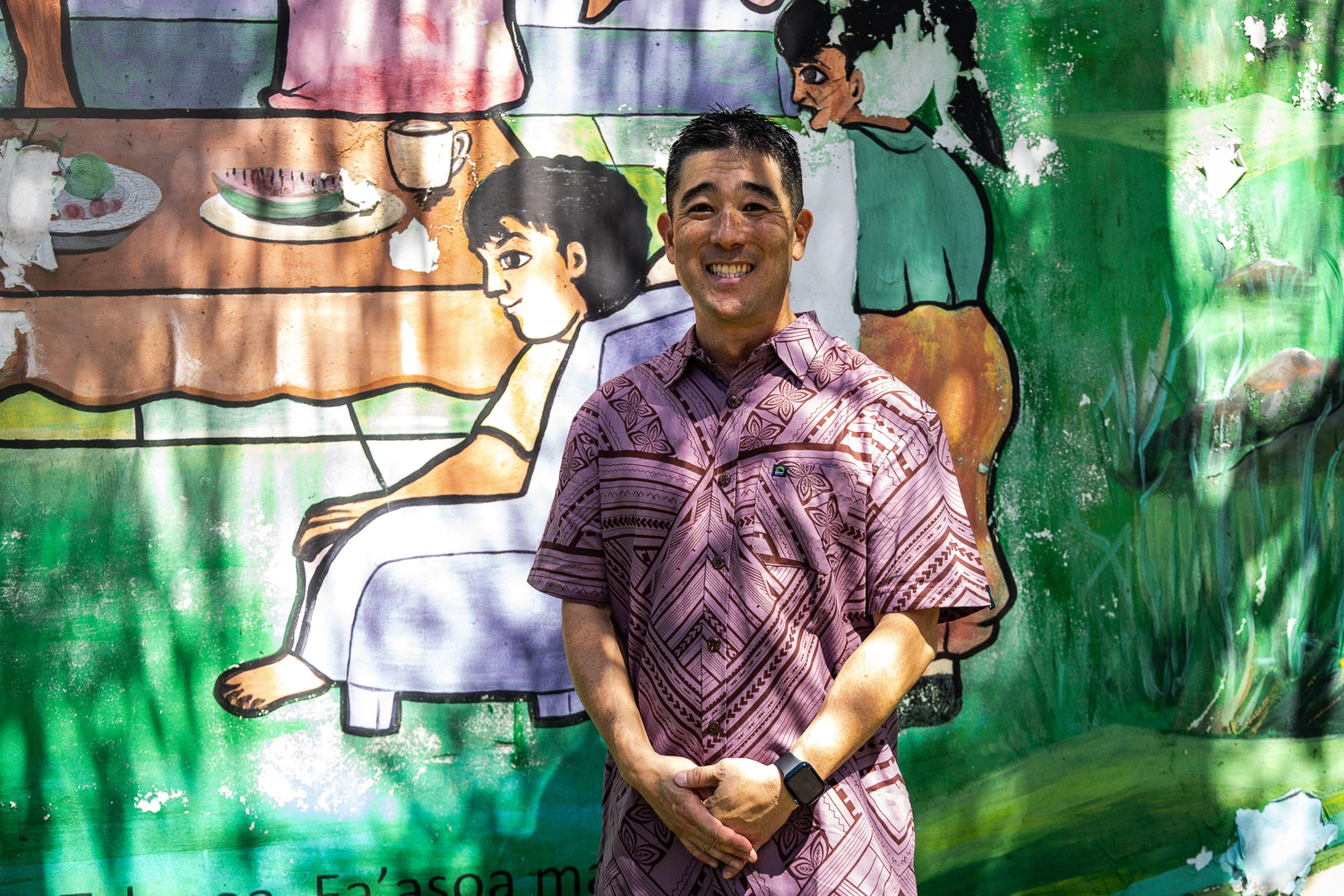Saving lives and sharing knowledge
 By Andrina Elvira Burkhart
•
28 April 2025, 7:40PM
By Andrina Elvira Burkhart
•
28 April 2025, 7:40PM
A man shot in the neck in Savaii over the weekend was lucky to have the specialist from the US Army at the National Hospital as part of the Soifua Manuia Clinics.
US Army medical specialists have been at various hospitals filling in the gaps and providing the much needed specialist care and in the case of the gunshot victim, saving lives.
The American team has been providing immediate medical support, and fostering a meaningful exchange of knowledge and experience.
"The primary goal of the mission is to share expertise with Samoan health care service providers and reinforce our strong connections with the people of Samoa through the services provided in the Soifua Manuia Medical Missions," said team leader Colonel Chad Kawakami.
"I am truly grateful for the opportunity to be here. My decision to join this mission was entirely voluntary, inspired by a deep commitment to service and a desire to learn from new communities. Samoa’s reputation for warmth and hospitality made it an easy choice, and I was eager to contribute to a place with such a rich cultural heritage.
"As the officer in charge and supervisor of the group, my role is to coordinate, synchronise, plan, and execute the mission to ensure we are working effectively and efficiently alongside our Samoan colleagues.”
Collaboration is at the heart of the mission.

“One of our local nurses recently learned how to take care of a patient with a brain bleed in a new way; he was amazed at how the medical team performed the skill," said Col Kawakami.
"He now has the tools to replicate that strategy in the future to save lives. Understanding healthcare and how to take care of patients is the basis of what we do. How we go about doing it is that there is more than one way of climbing a mountain.
"The beauty of what we’re doing is that there's more than one way. Just because our team sees it one way doesn’t make it the only way and that case of brain bleed.”
Every patient to the clinic brings a unique story and set of needs. One challenge the team faced was the language barrier and cultural differences in health beliefs. They approach these situations with respect and patience, often relying on local staff for guidance.
The team has seen a range of cases, including non-communicable diseases like diabetes and hypertension, infectious diseases and injuries. Preventive care and patient education have been important parts of their work to address these common health concerns.
Despite working with limited resources and equipment, the team has been resourceful.
In the US Army medical team is a son of Samoa. Sergeant First Class Joshua Fale is also able to connect to his roots with this visit.
"Being the non-commissioned officer in charge of the Soifua Manuia mission has been more than just leading a team; it has been an opportunity to bridge my military service with my roots," said Sgt Fale, an Army Reserve Soldier with the 1984th USAH-P whose family hails from Samoa.
"Sharing our culture with my colleagues has been one of the most meaningful experiences of my career. It reminds me that wherever we serve, we carry our heritage with us and we strengthen each other by sharing it. “
Colonel Rami Indudhara, a surgeon and urologist with the 1984th USAH-P said her most memorable experience was helping address the medical needs of patients, working alongside her medical counterparts and sharing knowledge.
“Outside of work, the best moments have been connecting with the community-sharing meals, learning about Samoan traditions, and exploring the island’s natural beauty. Among these, participating in the ANZAC Day commemoration in Samoa stands out as a true honour and a once-in-a-lifetime, cherished opportunity," she said.
“I hope to leave a positive mark by improving patient care and supporting local staff through knowledge exchange. This experience has been transformative. Working in Samoa has broadened my perspective and reinforced the importance of adaptability, humility, and cultural sensitivity in healthcare," said Col Kawakami.

The Soifua Manuia Team's mission comes to an end on 1 May, but they will be back again in July.
.
 By Andrina Elvira Burkhart
•
28 April 2025, 7:40PM
By Andrina Elvira Burkhart
•
28 April 2025, 7:40PM











